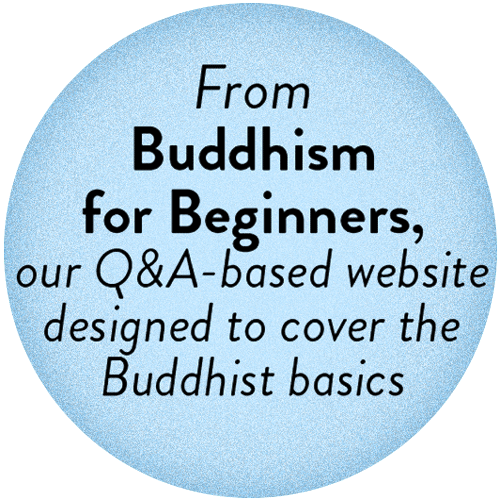Among the very first teachings the Buddha offered to his students—which would provide a foundation for the entirety of Buddhist training—were the guidelines for ethical living known as the five precepts. The Buddha knew that applying them to your thoughts, words, and actions every day, no matter how challenging they might be, is a sure way to improve your life by helping to resolve much of the emotional struggle and stress that cloud the mind. The precepts are integral to the Buddha’s path of practice, called the noble eightfold path, which guides the practice of virtue alongside the development of mental discipline and wisdom.
The precepts are usually recited as follows: I undertake to . . .
1. refrain from taking life (even an insect’s);
2. refrain from stealing or taking what is not freely given;
3. refrain from illicit sexual conduct (this includes sex with people who are already married or in relationships as well as with minors, and any other kind of sex that causes harm to oneself or others);
4. refrain from unskillful speech, including telling lies, gossiping, and speaking harshly;
5. abstain from taking intoxicants that cause heedlessness.
Much can be said about each individual precept and how abiding by them helps cut away the complications and entanglements and the resulting suffering we concoct for ourselves. Even people who don’t feel ready to meditate or take on other aspects of Buddhist practice can begin with the precepts and see positive changes in their circumstances and state of mind right away.
Some teachers recommend starting with a single precept—such as the pledge to refrain from lying—and practicing with that for a period of time. As the Thai Buddhist master Ajaan Fuang Jotiko once said, “if you can’t control your mouth, how can you ever learn to control your mind?” For most of us, it’s a sufficiently challenging place to begin.
Thank you for subscribing to Tricycle! As a nonprofit, we depend on readers like you to keep Buddhist teachings and practices widely available.

